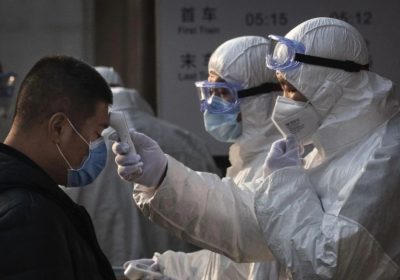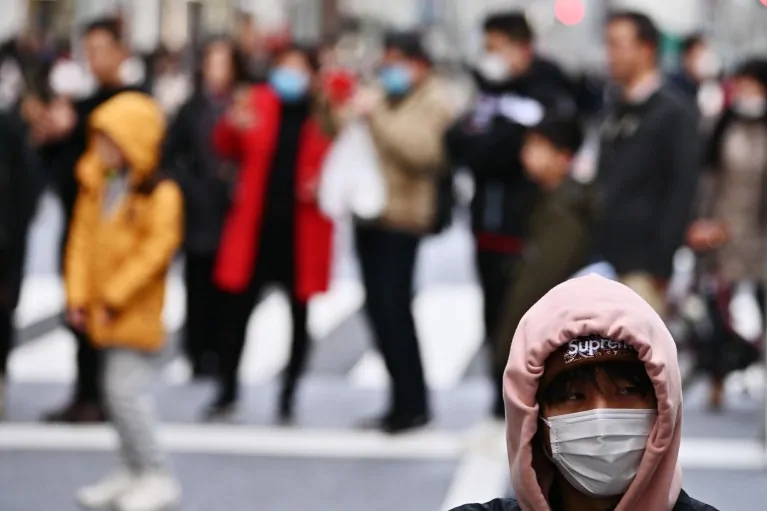
TOKYO — China failed to learn one of the most important lessons of the SARS outbreak 17 years ago, that wild animal markets are a potent breeding ground for disease with the possibility of ailments jumping to humans, health experts say.
SARS, or severe acute respiratory syndrome, was thought to have originated in masked palm civets, tree-dwelling mammals native to parts of Asia. The trigger point for the current coronavirus remains unclear, but China has linked the outbreak to the Huanan Seafood Market in Wuhan, which despite its name also appeared to be selling live cats and dogs, wild chickens, snakes and marmots.
China implemented controls on wildlife markets after the SARS epidemic, but those controls soon evaporated. The country remains a major consumer of wild and endangered animals for meat, as well as in traditional medicine.
Yuen Kwok-yung at the University of Hong Kong-Shenzhen Hospital, one of the authors of a new study on coronavirus and a leading authority on SARS, said the wild animal or game meat trade had obviously been rekindled since the SARS outbreak ended in 2003. The SARS outbreak claimed more than 750 lives in China and other countries.
“This is understandable that change of food or eating culture is always a difficult issue,” he wrote in an email. “But the lesson of this major epidemic is that the life, ecosystem and habitat of wild life must be respected.”
Viruses from wildlife can easily mutate and jump from animals to humans, and then from humans to humans, he said.“The price of such an epidemic is staggering, and this should not be allowed to happen again.”


Struggling to contain the outbreak, the Chinese government has imposed travel bans on 15 cities in the central Hubei province — effectively placing 48 million people on lockdown — and granted itself wide-ranging emergency powers across the country to enforce blockades, requisition housing and transport, and close businesses and schools.
China has been praised for reacting more swiftly and more transparently to this latest outbreak than with SARS in 2002, when it was widely accused of initially trying to cover up the epidemic.
A study published in the Lancet medical journal Friday confirmed the current outbreak is a new form of coronavirus, which is closest to the SARS-related coronaviruses found in Chinese horseshoe bats.
Some scientists say they believe another species was involved in transmitting the disease to humans, but no consensus has yet emerged on which animal, with theories ranging from snakes to mink.
“Wild animal markets are a petri dish for an epidemic and an unacceptable risk that should be consigned to history as soon as possible,” said Peter Knights of WildAid, a San Francisco-based group that works to end wildlife trade.
“Stress, dehydration, malnourishment, filthy conditions, mixing of species, wild and domestic, are the perfect cocktail to create a new deadly disease, and basing them in urban centers ensures a quick and wide dispersal to a wider world,” he said.
The trade represents a massive risk to human health and economies in parts of Asia as well as in Africa, he said.


“After SARS and now this, China urgently needs a strictly enforced ban on these markets and a massive awareness campaign to reduce demand for bushmeat,” he said.
China has shown it is capable of regulating the illegal wildlife trade when it wants to, banning the ivory trade at the end of 2017 and enforcing a customs crackdown on ivory smuggling.
But a strong lobby within the government, led by the State Forestry Administration, sees wild animals not as something to be protected but generally as a resource that can be utilized.
The Wuhan city government closed the seafood market at the beginning of January after the first cases of coronavirus emerged in people working there.
On the Weibo social media platform, a user posted that the market sold live cats, dogs, wild chickens, snakes and marmots. “There was even a signboard saying that they have live monkeys and deer for sale,” the post said, according to China Daily.
This provides “ideal conditions for the emergence of new viruses that threaten human health, economic stability, and ecosystem health,” Christian Walzer, executive director of health for the Wildlife Conservation Society, said in a statement. “The re-assortment and exchange of viral components between species at live animal markets is seen as the major source of new viruses.”
Walzer cited avian influenza, swine influenza, SARS and MERS, or Middle East respiratory syndrome, as examples of diseases originating in animals and subsequently transmitted between humans, “creating the conditions for a rapid global pandemic spread.”
Stay in touch and get the latest WildAid updates.
SIGN UPAbout WildAid
WildAid is a non-profit organization with a mission to protect wildlife from illegal trade and other imminent threats. While most wildlife conservation groups focus on protecting animals from poaching, WildAid primarily works to reduce global consumption of wildlife products such as elephant ivory, rhino horn and shark fin soup. With an unrivaled portfolio of celebrity ambassadors and a global network of media partners, WildAid leverages more than $308 million in annual pro-bono media support with a simple message: When the Buying Stops, the Killing Can Too.
Journalists on deadline may email communications@wildaid.org